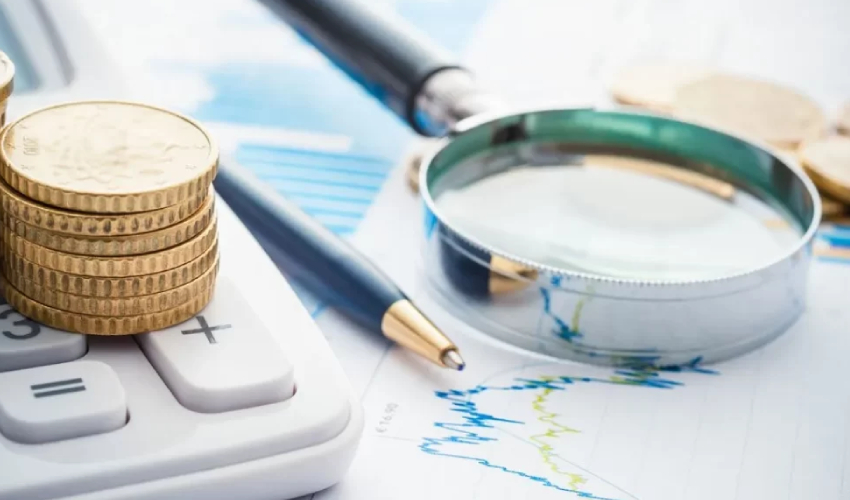- What are precious metals mutual funds?
- How precious metals investment funds work
- Types of precious metals investment funds
- Advantages of investment funds in gold and precious metals
- Disadvantages of investment funds in gold and precious metals
- Comparing precious metals mutual funds and buying metals
- Investment strategies in gold and precious metal funds
What are precious metals mutual funds?
Throughout the ages, the yellow metal has had its own luster that has enticed those with wealth, as much as it has been used as an ornamental metal, thanks to its characteristic of timeless material value.
In the modern era, gold and silver occupied an important place in the hedging of countries and individuals, before the emergence of paper currencies denominated in gold, and then these metals were followed by many other rare metals.
Precious metals investment funds provide investors with worthwhile investment tools to grow wealth and achieve profits, similar in style to other types of investment funds, such as real estate funds, stocks, and bonds.
Precious metals investment funds rely on raising money from some investors to invest it in a variety of precious metals, such as gold, silver, platinum, and palladium. Instead of buying metals individually and storing them, investors invest their money in units of this fund, giving them a share in the fund's portfolio of metals, the fund manager grows the investments based on his experience, and the profits of the fund are shared among the shareholders periodically, or according to a specific plan.
How precious metals investment funds work
In principle, the mechanism of metal investment funds does not differ from other funds, except for the minute details related to the nature of dealing with these investment materials and their specificity.
First, the fund collects money from investors, to be used to buy precious metals or contracts related to them, and in turn, the fund management seeks to diversify investments in various precious metals in order to minimize risks, taking into account investment plans and studying indicators about expected performance.
The fund manager manages the investment: Buying and selling metals, making timely investment decisions, and then distributing profits to investors according to their contributions to the fund.
Types of precious metals investment funds
Metal funds can be divided according to their investment activities and specializations:
Gold investment funds
This refers to funds that invest exclusively in gold such as gold bullion, coins, or perhaps the gold industry and mining, or even futures contracts.
Silver investment funds
It is the second most important metal after gold, which is also characterized by good profits, often with better investment performance. In these funds, the focus is on investing in silver metal, in its multiple investment paths, or in its industries and contracts related to this metal.
Platinum and palladium investment funds
These are funds that specialize in platinum and palladium and their mining or direct investment, two metals that are used today in the jewelry industry as well as the manufacture of some automotive parts.
Diversified investment funds in a range of precious metals
A type of hybrid fund, investing in a range of precious metals simultaneously, by diversifying the invested assets from a range of precious metals, such as gold, silver, palladium, platinum, and possibly copper, or other commodities.
Advantages of investment funds in gold and precious metals
The historical importance of metals and their privileges in the hedging process, no matter how circumstances change and the values of other types of investments fluctuate; the limited quantities of gold globally and the increasing demand for it and other metals are enough to contribute to increasing its price over time, in addition to the global importance that countries attach to increasing their reserve stocks of precious metals, especially gold.
Moreover, metal investment funds are considered appropriate funds for diversifying investments, and through them, wise fund management can seize opportunities for growth in the prices of some metals.
Investing in these funds is also easy for even small investors, with the opportunity these funds provide to invest in rare metals, in addition to the availability of wise and expert management capable of taking advantage of opportunities and growing profits.
Disadvantages of investment funds in gold and precious metals
The disadvantages of investing in precious metal funds are related to the type of assets you invest in. Metal prices may be exposed to turmoil in the short and medium term, affected by supply and demand factors, reluctance to buy, and geopolitical disturbances and events.
Then, participatory investment in investment funds naturally includes management fees and deductions from profits for managing the fund, and the costs of opening and closing deals, which are costs that individuals do not usually incur in their direct and personal investments.
Comparing precious metals mutual funds and buying metals
Although the materials invested (precious metals) in the case of fund investing and direct investing are similar, the differences between the two types of investment are substantial, for example:
- Investing in precious metals funds offers individual investors the opportunity to participate in investments that may not be readily available to them at times, such as investing in gold mining companies, or certain rare metals.
- Mineral funds allow small investors with limited financial savings to participate by purchasing units in the fund.
- Investment funds are managed with expertise and specialization, by a manager who understands the investment tools, can read the market and its future, and deals with risks with sufficient experience, which is something that many individual investors may lack.
- Investing in a metals fund involves specific costs and expenses that a direct investment vehicle may not have.
Investment strategies in gold and precious metal funds
Investment strategies in gold, silver, and other metals vary into multiple paths, each of which has its own advantages and disadvantages:
- Periodic investment: It is a simple mechanism in which investors find an opportunity to grow their investments in stages, such as purchasing an amount of gold or purchasing units from a precious metal fund whenever the opportunity arises, regardless of the price of gold at the time of purchase, and whether the price is high or low.
- Long-term investment: such as buying a share in the fund for several years in the future, without looking to exit investments during that period.
- Strategic investment: by adjusting investments in metal funds based on technical analyses of the gold market, for example, or developments in the general economy, for example, supporting investments in areas of support and when prices decline, or withdrawing part of profits in periods of growth to reinvest them in periods of decline.
4. Start your profitable investment in mutual funds in Turkey with Oragon's experts
Today's investment funds are ideal investment vehicles for those who want to maximize the investment value of their savings, based on the funds' expertise in asset management and efficiency in capital growth. But only if investment decisions in mutual funds are based on clear foundations, thoughtful decisions, and in-depth experience.
Oragon Company offers its clients a group of investment funds, in addition to its competence as one of the companies licensed by the Securities Commission and the responsible authorities in Turkey for licensing new investment funds, which provides investors with the opportunity to license their own investment fund to serve their aspirations and goals.
In addition, Oragon Company offers free consultancy services to its clients who are interested in investing in mutual funds, or want to learn about its professional business model and services in this regard.
Edited by Oragon Company ©


